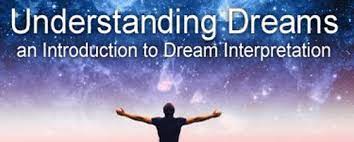Dreams have fascinated humanity for centuries, wheat dreams serving as a canvas where our subconscious mind paints a vivid tapestry of thoughts, emotions, and experiences. The interpretation of dreams, a practice rooted in both ancient tradition and modern psychology, seeks to uncover the hidden meanings behind these nocturnal narratives. This article delves into the fundamental aspects of dream interpretation, offering insights into its significance and methods.
The Historical Context of Dream Interpretation
The quest to understand dreams dates back to ancient civilizations. The Egyptians and Mesopotamians, for instance, viewed dreams as messages from the gods or as omens of future events. The Greek philosopher Aristotle, in contrast, proposed that dreams were a result of the mind’s processing of daily experiences and thoughts. In the Middle Ages, dream interpretation became intertwined with spiritual and religious practices, often seen as divine revelations.
The Modern Psychological Perspective
In contemporary psychology, dream interpretation is often associated with the work of Sigmund Freud and Carl Jung. Freud, in his seminal work “The Interpretation of Dreams,” proposed that dreams are a manifestation of repressed desires and unresolved conflicts. He argued that dreams are symbolic and that understanding these symbols can provide insight into one’s unconscious mind.
Carl Jung, a student of Freud, expanded on these ideas by introducing the concept of archetypes and the collective unconscious. Jung believed that dreams are not only personal but also reflect universal themes and symbols shared across cultures. According to Jung, analyzing dreams can help individuals connect with their deeper selves and gain a broader understanding of their inner world.
Common Themes and Symbols in Dreams
Dreams often feature recurring themes and symbols that can provide valuable clues to their meanings. Here are some common elements and their potential interpretations:
- Falling: Dreams of falling can signify feelings of insecurity or a lack of control in one’s waking life. They may also reflect anxieties about failing or making a mistake.
- Being Chased: If you dream of being pursued, it might indicate that you are avoiding a problem or issue that needs to be addressed. The identity of the pursuer can offer additional insights into what you are running from.
- Flying: Flying dreams are often associated with a sense of freedom or escape. They may symbolize a desire to break free from constraints or to achieve a new perspective on a situation.
- Teeth Falling Out: This common dream can relate to fears about appearance, self-esteem, or concerns about one’s health. It may also reflect anxieties about aging or loss.
- Being Naked in Public: Dreams of public nudity can suggest feelings of vulnerability or fear of exposure. They might indicate that you feel unprepared or insecure about how others perceive you.
Practical Approaches to Dream Interpretation
To effectively interpret dreams, consider the following approaches:
- Keep a Dream Journal: Recording your dreams immediately upon waking can help capture details and patterns that may otherwise be forgotten. This practice allows for a more thorough analysis over time.
- Reflect on Emotions: Pay attention to the emotions you experience during the dream and upon waking. Emotions often provide clues to the underlying issues or themes represented in the dream.
- Analyze Symbols: Look for recurring symbols and themes in your dreams. Researching their potential meanings and reflecting on how they relate to your personal experiences can offer valuable insights.
- Seek Professional Guidance: If you find dream interpretation challenging or if dreams are causing distress, consider consulting a therapist or a counselor. Professionals trained in dream analysis can provide personalized insights and support.
Conclusion
Dream interpretation is a fascinating field that bridges the realms of psychology, mythology, and personal insight. By exploring the meanings behind dreams, individuals can gain a deeper understanding of their subconscious mind, uncover hidden emotions, and address unresolved conflicts. Whether approached through historical perspectives or modern psychological theories, interpreting dreams remains a valuable tool for self-discovery and personal growth.

